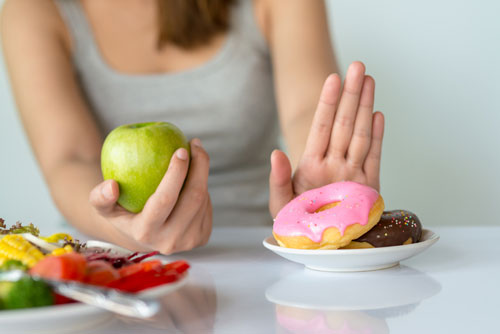Sugar has become perhaps our biggest dietary villain. It’s linked to virtually all the biggest killers that plague Americans: obesity, heart disease, cancer, diabetes… The list goes on and on.
Most of us think we know why sugar is harmful: It is packed with empty calories. It makes us fat while providing no nutrition. But new research shows there’s another way sugar damages our bodies and cuts our lives short.
The study was published in the journal Cell Metabolism. Researchers fed fruit flies a high-sugar diet.[1]
As with people, flies that eat a lot of sugar become fat, diabetic, and die young. But Dr. Helena Cochemé said the researchers discovered a new way sugar is harmful. She’s the principal investigator of the study.
The scientists found that the excess sugar caused the flies to accumulate uric acid. It’s a waste product. Excess uric acid damaged the flies’ kidneys and it does the same to humans. It also causes the chronic inflammation that leads to gout.
The bottom line?
Add kidney damage and inflammation caused by excess uric acid to the many ways sugar destroys your health.[2]
5 Healthy Sweeteners
You don’t need sugar in your diet. Here are five healthy substitutes:
- Monk fruit extract. It’s a natural, zero-calorie sweetener. Monk fruit, also known as luo han guo, is a small fruit that originates in Southeast Asia. It gets its sweetness not from glucose or fructose like most fruits, but from antioxidants called mogrosides. It’s much sweeter than sugar, so just a few drops will sweeten your coffee.[3]
- Coconut sugar. Made from the sap of cut flower buds of the coconut palm, it has a lower glycemic index than regular sugar. This means it prevents blood sugar spikes. It’s also a great source of potassium, which helps fight metabolic syndrome.
Despite its name, it doesn’t have a coconut flavor. The taste is closer to brown sugar. You can use it in place of regular sugar in cooking.
- Raw honey. Not all honey is the same. Most honey, probably the kind you have sitting in your pantry, is heavily processed. Your best bet is 100% raw organic honey. It hasn’t been heated, pasteurized, or processed in any way.
Raw honey contains vitamins, minerals, and other nutrients. The darker the honey, the more nutrients and flavor. It’s just as sweet as sugar, only much healthier. It also has antibacterial, antifungal, antiseptic, and antioxidant properties.[4]
- Stevia. This low-calorie natural sweetener is made from the leaves of a plant native to South America. Like monk fruit, stevia is much sweeter than regular sugar, so a little goes a long way. The leaves can be used whole or ground. Its glycemic index is zero, so it has no effect on your blood sugar. There are also no artificial ingredients in it.[5]
- Agave nectar. This honey-like sap comes from the leaves of blue agave, a succulent plant in Mexico. Like coconut sugar, agave nectar has a low glycemic index. It’s 1-1/2 times sweeter than sugar.[6]
These healthy sugar alternatives offer the sweetness you love, without the deadly downsides of sugar.
Editor’s Note: If you’re concerned about sugar intake, you should know that some mainstream diabetes treatments can actually make the condition worse. To find out more, read Independent Healing, your best source for evidence-based health advice. Go HERE to subscribe.
Related Articles
One Vegetable Lowers Blood Sugar More Than Metformin
Time-Restricted Eating Controls Blood Sugar
High Blood Sugar? Eating This Can Be Lifesaving
Like this Article? Forward this article here or Share on Facebook.
[1]https://www.cell.com/cell-metabolism/pdf/S1550-4131(20)30075-9.pdf?_returnURL=https%3A%2F%2Flinkinghub.elsevier.com%2Fretrieve%2Fpii%2FS1550413120300759%3Fshowall%3Dtrue
[2]https://medicalxpress.com/news/2020-03-sugar-early-death-due-obesity.html
[3]https://www.healthline.com/nutrition/monk-fruit-sweetener#what-it-is
[4]https://www.healthline.com/health/food-nutrition/top-raw-honey-benefits
[5]https://www.livestrong.com/article/268751-stevia-the-glycemic-index
[6]https://www.livestrong.com/article/398007-agave-nectar-benefits

